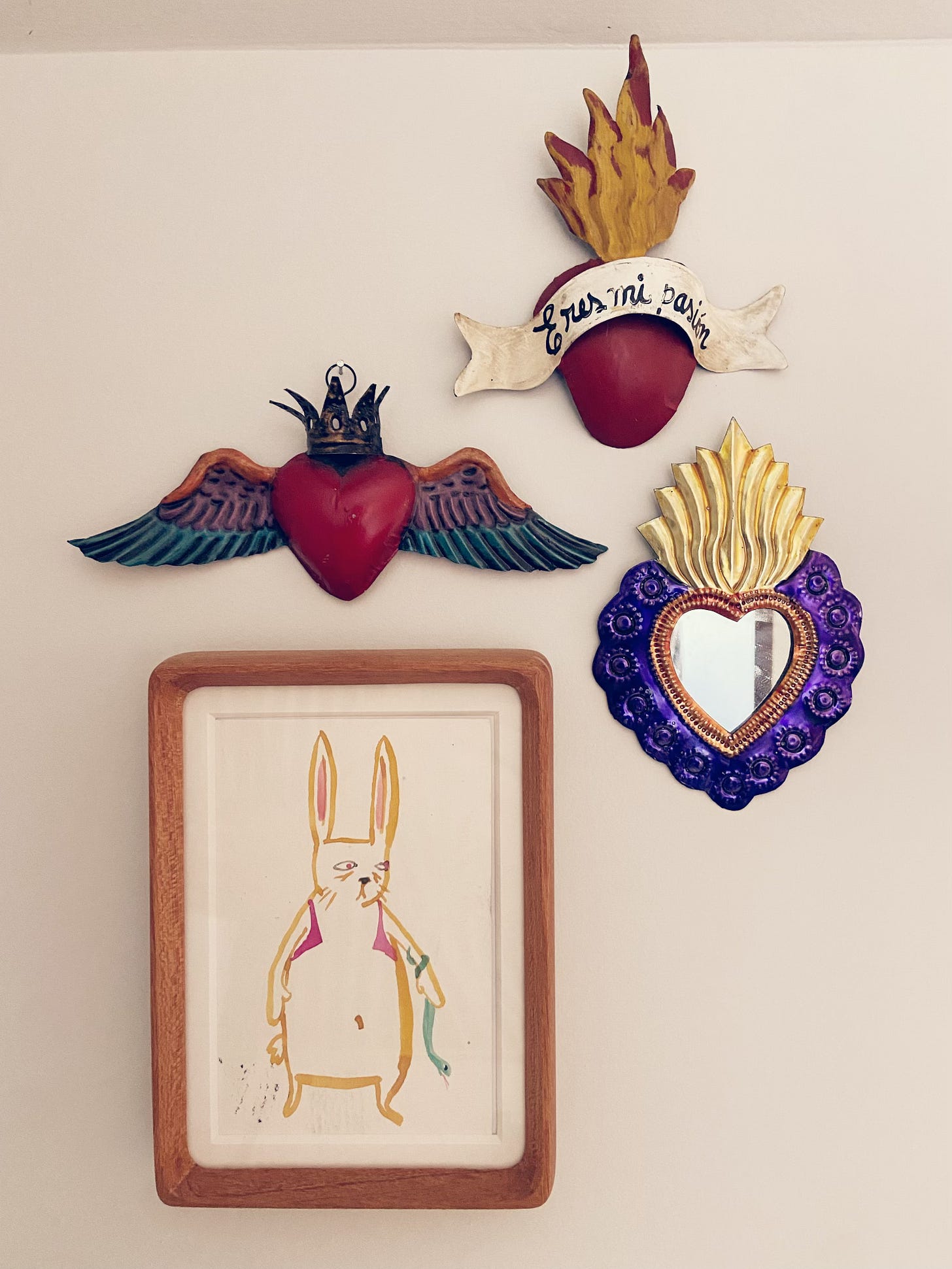While folding the literal laundry the other day, my daughter Ruby and I were listening to her favorite playlist, 50s Housewife Bangerz. Why does she love this music? Is it some act of past life remembrance when she herself was a 1950s housewife? Or was music simply better back then and we both know it?
In any case, The Flamingos hit “I Only Have Eyes For You” came on with its catchy refrain:
My love must be a kind of blind love
I can't see anyone but you
I began reflecting on this type of love, where we shine a spotlight on one person to the exclusion of everyone else around us.
I was reminded of a reality show called Love is Blind which is, safe to say, very trashy. The premise is strong though: people who feel ready to get married come on a show where they are put in a room and, on the other side of the wall, is a person of the gender they are attracted to. They go on several dates with different people in this manner, never seeing one another until two people fall in love and one of them proposes marriage.
Without seeing this person and when removed from the distractions of the “real world,” the premise of the show is: is love truly blind?
The first season saw a surprising number of couples fall madly in love with one another. Some of the couples actually got married at the end of the season and, more surprising still, are together a few years later.
There is an interesting turning point in the show when, after their time in isolation together, they go back to the aforementioned “real world” and they begin to find out that this person was not actually the fantasy they had built up in their mind. My favorite example of this is one woman discovering that her fiancé did not own plates, only disposable plasticware. Of all of the things to ask a potential spouse, “Do you own metal or plastic silverware?” is not one I could have predicted to ask before getting engaged either.
Why does this show so intrigue me (and why have I talked your ear off about it)? It’s because, no matter what else may be at play, these people show up wanting to fall in love. And yet this love is indeed, as The Flamingos song goes, a kind of blind love where the participants get so mesmerized by their fixed idea of this potential mate that they can’t see anyone but them.
From a Buddhist point of view, love is said to be innate to who we are. We all love love, in its many forms. The way many of us think of love is this form of desire, a one-to-one “you’re my person” energy, whereas the potential to love is actually much more vast.
As the Zen master Thich Nhat Hanh once wrote, “When you love one person, it’s an opportunity for you to love everyone, all beings.”
To read the second half of this piece, please consider becoming a paid subscriber of The Laundry today
Keep reading with a 7-day free trial
Subscribe to The Laundry to keep reading this post and get 7 days of free access to the full post archives.





